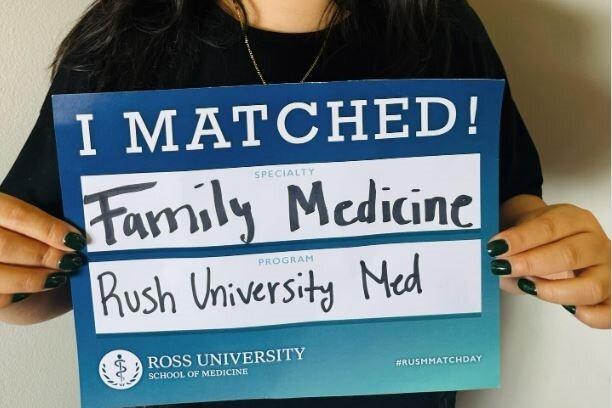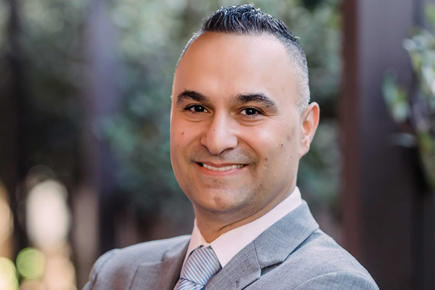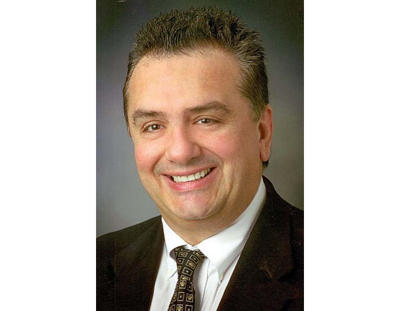Q: Hi Marc! You’re now about halfway into your internal medicine residency at Drexel—if you could, how would you sum up the life of a PGY-1 (postgraduate year) resident?
Intern year is rough. There’s no way around it. But I don’t think that’s specific to just internal medicine or just my program. You’re the first one seeing your patients in the morning, checking labs, putting in daily orders, calling consults, and speaking with family members. It’s a lot at first. But at the end of the day I enjoy it. It’s amazing to see how much my classmates and I have grown in six months. And also how quickly six months have flown by. I wouldn’t trade it for anything. Well, maybe for more sleep. Definitely for more sleep. On a beach. In Thailand.
Q: How did you feel on your first day of residency? Nervous? Excited? A little of both?
I couldn’t wait. It felt like waking up on the morning of my birthday as a little kid. It’s strange when you work so hard for so long towards a goal and then one day you’re living it.
Then it became frustrating. That first month of residency is a lot of figuring out how the system works and not a lot of actual medicine. It’s a lot of scut work and I often felt like an overqualified secretary. A secretary who had no idea how to do his job.
Fortunately I’ve had some really great senior residents who continue to help me everyday. I imagine that being a senior resident helping an intern is kind of like watching a child learn to tie their shoes. It would be easier for you to just do it yourself and it’s frustrating and time consuming but you know that they have to learn to do it themselves so you sit patiently and show them the ropes. Having a good senior resident makes all the difference and I can’t thank them enough for not only putting up with my antics but also taking the time to teach me and be a role model and mentor.
Q: I read on your Twitter feed that you’ve run into a few Ross grads at Drexel. Must be cool to see fellow Rossies during residency.
I love running into fellow Ross grads. And we are everywhere! Even more broadly being a Caribbean medical graduate is a huge connection and it’s been nice to see so many residents, fellows, and attendings from similar backgrounds.
Q: I saw (also on Twitter) that you’re teaching medical school students? What’s that like?
It’s a challenge to have extra time in your day to teach but I make a concerted effort to find time. It always frustrated me in medical school when I was literally paying to be there and learn and all I ended up doing was scut work. So when I have a medical student I try to teach bits and pieces of medical knowledge as we go throughout the day along with the more formal lecture style of teaching when we aren’t too swamped. And inevitably when I don’t know something it’s particularly rewarding to have my medical student teach me something or for us to learn something together from our senior resident or attending…or UpToDate.
Q: Do you still have time to blog?
It’s a priority so I make time for it. Although admittedly not as much as I used to. My most recent post The Worst Thing About Being an Internal Medicine Intern was published on KevinMD.
I also just wrapped up a series of interviews of recent medical school graduates. I interviewed them about the residency application and interview process and the match. I spoke with current interns in surgery, emergency medicine, OB/GYN, PM&R, and pediatrics. I also interviewed a Ross graduate who matched back home in Canada, a family medicine intern who failed step one, and one brave interview with an unmatched applicant going through the match again this year. I wanted to share the stories of different medical students and have each of them give their own unique advice on the application and match process in order to quell the fears and anxieties that all medical students experience to some degree.
Currently, I’m in the process of interviewing those same interns in a follow up series about intern year. So keep a look out!
Q: I know it’s a little early, but are you considering a fellowship further down the line?
Cardiology. Since, you know…I’ve seen enough broken hearts to know I’d rather fix them instead. Just kidding! But yes, I do seriously plan on pursuing a fellowship in cardiology. Fortunately I still have enough time to figure out whether or not I plan to pursue a subspecialty in heart failure, invasive cardiology, or electrophysiology. For now, cardiology is good enough for me.
Q: Any thoughts for prospective students considering Ross?
Ross gives you the ability to become an MD. It is not a guarantee that you will get the residency that you want in your desired specialty. I happened to get both but you definitely face a unique set of challenges when you choose to attend a Caribbean medical school.
So if you know that you want to go into orthopedic surgery, urology, neurosurgery or any other ultra competitive field then maybe Ross isn’t the right for you. It’s not impossible to match into those fields from a Caribbean medical school, Ross has plenty of graduates to prove it, but those fields are already tough to match into without giving yourself extra hurdles to overcome.
That being said, if you’re thinking about going into a primary care field like family or internal medicine, pediatrics, OB/GYN, or psychiatry then Ross might be a great fit for you since two-thirds of our grads go into primary care fields. It’s still up to you to make your studies a priority, get killer USMLE scores, and set yourself apart from the field!
You can subscribe to Marc's blog at MyKatz, follow him on Twitter at KittyKatzMD, and Like him on Facebook at Marc Katz, MD.



